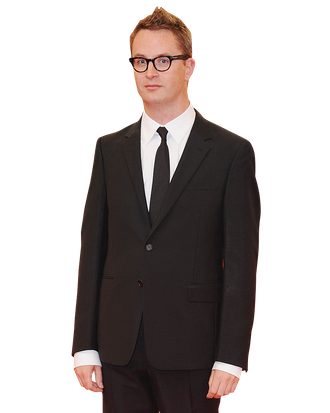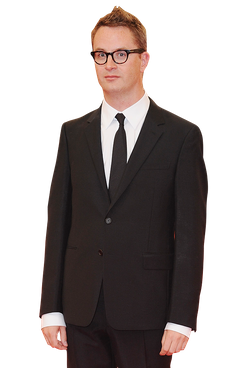

Danish director Nicolas Winding Refn is known on the festival circuit for Bronson and the Pusher trilogy, but he’s racing for the multiplexes with Drive. The film, which opens this weekend, stars Ryan Gosling as Driver, a guy who works as a Hollywood stunt driver by day and a robbery wheelman by night, all while trying to help out the girl who lives down the hall (Carey Mulligan, in a performance so delicate you’re actually concerned for her breathing). He also gets himself mixed up with a movie producer turned L.A. mobster played with unexpectedly menacing aplomb by Albert Brooks. We spoke with Refn, who won the Best Director prize at this year’s Cannes Film Festival, about Drive’s graphic violence, Brooks’s “volcano of emotions,” and his Hollywood experience.
When you and Ryan Gosling first started talking about doing this movie together, did he tell you what it was he liked about your previous films?
I’m sure he told me what he liked about my films, but I couldn’t remember it. What was clear about Ryan, the reason he is the greatest actor at the moment and will be for a long time, is that he’s very intuitively strong. He trusts his instincts like nobody else. And I’m not the best filmmaker in the world, there’s a lot of better filmmakers than me, despite what Cannes says this year. But the kinds of films I make, I’m the best at. And that’s the only thing I can do.
Some people are interpreting Drive as a variation on the superhero origin story. How do you feel about that?
I’ve always wanted to make a superhero movie. I even said I would like to make a Wonder Woman movie and no one ever called me. So I was like, “I’ll make my own superhero movie.” So Drive was essentially an allegory of a superhero in the making. He became a superhero at the end of the movie and that’s why it’s a happy ending.
There are these wild moments of graphic violence in the movie. It’s very stylized and it’s shocking.
The two movies I made previously dealt with when violence comes, it comes quick, deadly, and it’s visceral. Almost a superhuman level in terms of violence. With Drive, the structure I wanted to do was basically based on Grimm’s Fairy Tales. So the first half of the movie is about two people who meet and fall in love, but it’s spiritual, it’s never physical, it’s maybe not even, in a sense, real. It’s the idea of higher love. And in Grimm’s Fairy Tales, when the tables turn and it’s time for the villains to be punished it’s always very visceral, very extreme. It’s a two-act structure. First act, third act; it’s missing a second act because there’s nothing in between. In the beginning, he is there for her as a human being and when she needs him as a hero, he’s there as a hero. He is what you need him to be. It’s why he will continue to roam the landscape being a driver of the night, the superhero with a scorpion sign on his back as he protects the innocents against injustice.
No one can see the movie without talking about Albert Brooks. While there has always been an undercurrent of rage to his screen acting, it has never broken out into actual violence before. What made you think of him for the part of Bernie Rose?
There was always something about to boil in Albert Brooks. He was always somebody about to have a nervous breakdown. I’m not hugely familiar with his work, but I remember seeing his movies when I was very young and was always drawn to him. So when I had to cast Bernie Rose I wanted him automatically. He was my prototype. But I had to meet him to make sure it was going to work. So Albert came by my house, I was having this real Josef von Sternberg complex, I wanted a huge house with a swimming pool and orange trees, all the kind of Hollywood things the film was also about, the illusion of Hollywood. And he came and he was a volcano of emotions. And I realized it was going to work out because since this man himself had not yet killed anybody, even in a movie, it would just be a matter of time — so let’s keep it in a movie.
It’s interesting: You’ve always carried yourself as an important filmmaker and now the rest of the world is finally catching up.
Do I live the ugly duckling life? Probably. Did I set out like this, meaning I wanted to continue on this route? No, that just kind of evolved. I think it comes from making films every time the way you want to make them and knowing in the end it is going to be okay. That’s all I had to go on, I always make my films like it’s the last film I’ll make. Because if I don’t make any more films, at least I went out shooting, guns blazing. And nobody can take that away from me. It’s also out of fear, the insecurity of saying, “I can only do it this way.” And I have to fight for that no matter what. So it’s a way to protect myself. So coming to Hollywood I of course had the fear that this could be dangerous for me. But I also knew that I had Ryan to protect me. So I wound up having a first-class A-number-one Hollywood experience. Something I never thought I’d have.

